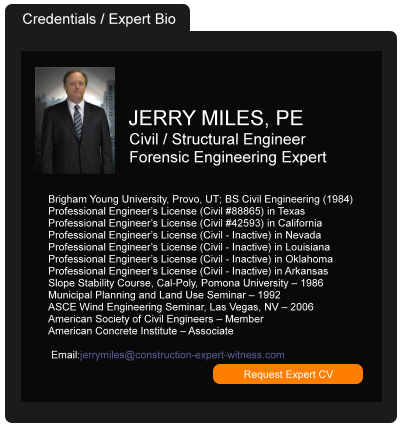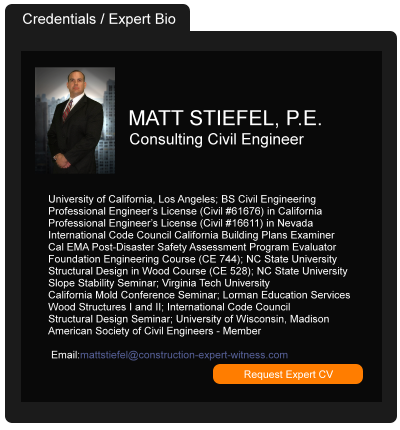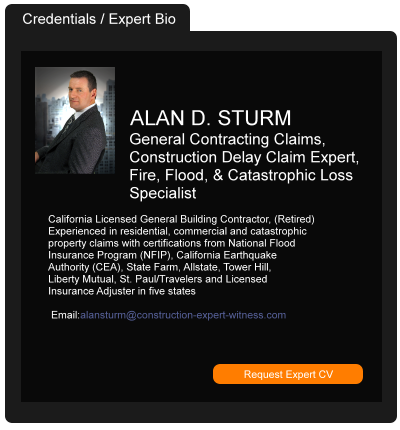Drones Used Despite Uncertain Legal Consequences
March 12, 2015 —
Beverley BevenFlorez-CDJ STAFFFrancis Manchisi of Wilson Elser discussed how several industries—including construction—are using unmanned aircraft systems or unmanned aerial vehicles, commonly referred to as drones, and are either exploiting legal loopholes or ignoring laws altogether.
The Federal Aviation Administration (FAA) has recently released a Notice of Proposed Rulemaking, which is now in a 60-day “notice and comment” period that is open to the public. Once that period ends, the FAA will consider the comments before putting the rules into law.
According to Manchisi, the proposed rules include:
- Unmanned aircraft must weigh less than 55 lbs. (25 kg).
- Unmanned aircraft must remain within visual line of sight (VLOS) of the operator or visual observer.
- Maximum altitude is 500 feet above ground level.
- Preflight inspection by the operator is required.
- Operators are required to obtain an unmanned aircraft operator certificate with a sUAS rating from the FAA.
Read the court decisionRead the full story...Reprinted courtesy of
Nevada Senate Bill 435 is Now in Effect
February 24, 2020 —
Bremer Whyte Brown & O'Meara LLPATTENTION: Nevada liability departments and auto insurance carriers! Nevada Senate Bill No. 435 was recently signed into law and there are two key points to be aware of: Disclosure of Policy Limits Demand and Voiding Releases. These both deal with pre-litigation situations.
1) Nevada law now requires a motor vehicle insurer to disclose the limits of the policy if the claimant provides a HIPAA authorization which allows the carrier to “receive all medical reports, records and bills related to the claim from the providers of health care.” This is a change from the previous Nevada statute which required the disclosure of policy limits only after litigation was commenced.
However, it appears from the language of the statute that there are limits to this new mandate. Section 4 of the new law is written in such a way to allow the argument that the new law applies only to accidents that occurred after 10/1/19, and that the insurance company has to request the HIPAA waiver from the claimant in order for the disclosure requirement to apply.
The plaintiff’s bar is already attempting to address this language in the legislature. As written, subsection (4) is governed by subsection (1) which states that the insurance company “may require the claimant … to provide … a written authorization.” The following subparts all appear to be triggered only by the act of the insurance company requesting a HIPAA waiver. The plaintiff’s bar is pushing for clarifying language that would make it clear that once the claimant sent a HIPAA waiver, irrespective of whether the document was requested by the insurance company or not, the insurance company is required to disclose policy limits. This is not how the law reads on its face, and the change would make a significant difference from a practical perspective.
Read the court decisionRead the full story...Reprinted courtesy of
Bremer Whyte Brown & O'Meara LLP
Are Defense Costs In Addition to Policy Limits?
December 02, 2015 —
Craig Martin – Construction Contractor AdvisorI recently had a discussion with an insurer about whether defense costs were included within the policy limits of a client’s coverage or in addition to policy limits. This was an important discussion because if costs of defense were included in the policy limits, my client was going to exceed those policy limits in a hurry. How would this situation play out with your insurance?
Fortunately, the majority of insurance policies, such as Commercial General Liability (CGL) policies, provide that defense costs are “in addition” to the policy limits. But some policies, often times referred to as “burning limits” policies, provide that cost of defense is included in the policy limits. This means that if you have $1,000,000.00 policy limits, your costs of defense will reduce that limit throughout the course of litigation.
Read the court decisionRead the full story...Reprinted courtesy of
Craig Martin, Lamson, Dugan and Murray, LLPMr. Martin may be contacted at
cmartin@ldmlaw.com
Thank You for 14 Consecutive Years of Legal Elite Elections
December 29, 2020 —
Christopher G. Hill - Construction Law MusingsThanks to the Virginia legal community that has continued to elect me to the Virginia Business Legal Elite in the Construction Law Category for 14 years running. The 14 consecutive years of election to the Legal Elite in the Construction Category spans my time as a solo construction attorney. The fact that you all have continued to elect “100%” of the lawyers at The Law Office of Christopher G. Hill, PC for the last 10 years is most gratifying and only confirms that my decision to “go solo” over 10 years ago was a good one. To be included in this list of top construction attorneys is both humbling and gratifying. For the complete list of the Virginia construction lawyers that were elected along with me, see the 2020 Virginia Business Legal Elite in Construction Law.
Reprinted courtesy of
The Law Office of Christopher G. Hill
Mr. Hill may be contacted at chrisghill@constructionlawva.com
Read the full story... Read the court decisionRead the full story...Reprinted courtesy of
Your Work Exclusion Applies to Damage to Tradesman's Property, Not Damage to Other Property
March 30, 2016 —
Tred R. Eyerly – Insurance Law HawaiiThe New Mexico Court of Appeals presented a cogent analysis of claims for construction defects and the application of the "your work" exclusion under a CGL policy in Pulte Homes of New Mexico, Inc. v. Indiana Lumbermens Ins. Co., 2015 N.M. App. LEXIS 134 (N. M. Ct. App. Dec. 17, 2015).
Pulte built 107 homes. Pulte contracted with 'Western Building Supply (WBS) to provide windows and sliding glass doors for the homes. Pulte was named as an additional insured under WBS's policy with Lumbermens (ILM).
In 2007, a large group of homeowners sued Pulte, alleging numerous construction defects in their homes. Among the defects were windows that leaked and sliding glass doors that stuck and did not close completely. Many of the homeowners arbitrated their claims against Pulte. In May 2009, Pulte tendered its first demand for a defense to ILM. The arbitration award against Pulte found that windows and doors did not operate properly and had been replaced by Pulte.
Read the court decisionRead the full story...Reprinted courtesy of
Tred R. Eyerly, Insurance Law HawaiiMr. Eyerly may be contacted at
te@hawaiilawyer.com
Court Finds Duty To Defend Environmental Claim, But Defense Limited to $100,000
August 14, 2023 —
Tred R. Eyerly - Insurance Law HawaiiWhile agreeing with the insured there was a duty to defend, the court determined the defense of an environmental claims was limited to $100,000. Casa Nido Partnership v. JAE Kwon, 2023 U.S. Dist. LEXIS 97701 (N.D. Calif. June 5, 2023).
In 1976, Casa Nido purchased the property and remains the current owner to this day. Catherine O'Hanks owned and operated a dry-cleaning facility at the property from 1960 to 1992.
In August 2016, Casa Nido learned of Tetrachloroethylene (PCE) subsurface contamination. Casa Nido stipulated that it did not know, nor had any reason to know, before 2016, of the existence of the subsurface contamination. Casa Nido alleged that due to equipment malfunction or improper usage, there were sudden and accidental spills and equipment overflows of PCE during the 32-year period that defendant O'Hanks operated the dry-cleaning business on the property. Casa Nido spent hundreds of thousands of dollars remediating the environmental damage.
Read the court decisionRead the full story...Reprinted courtesy of
Tred R. Eyerly, Damon Key Leong Kupchak HastertMr. Eyerly may be contacted at
te@hawaiilawyer.com
Wilke Fleury Attorneys Featured In Northern California Super Lawyers 2021!
July 25, 2021 —
Wilke Fleury LLPWilke Fleury is proud to announce that 15 of our astounding attorneys were featured in the Annual List of Top Attorneys in the 2021 Northern California Super Lawyers magazine.
Super Lawyers rates attorneys in each state using a patented selection process; they also publish a yearly magazine issue that regularly produces award-winning features on selected attorneys. 1 of 15, Michael Polis, was also recognized on Page 9. Polis’ second job as a farmer was highlighted with a column and some neat photos.
Read the court decisionRead the full story...Reprinted courtesy of
Wilke Fleury LLP
Montana Federal District Court Finds for Insurer in Pollution Coverage Dispute
October 24, 2021 —
Melanie A. McDonald - Saxe Doernberger & VitaApplying Louisiana law, a recent federal court decision exemplifies why policyholders should thoroughly read claims-made policies to understand when notice is due to insurers and truthfully complete policy applications. In Admiral Insurance Company v. Dual Trucking, Inc.,1 the Court determined the insurer, Admiral Insurance Company (“AIC”), owed no duty to defend or indemnify Dual Trucking and Transport, LLC (“DTT”), Dual Trucking of Montana, LLC (“DTM”), and Dual Trucking, Inc. (“DTI”) (collectively, the “Dual Entities”) under two Environmental Impairment Liability Policies (“EIL Policies”) and four Contractor Pollution Liability Policies (“CPL Policies”). The Court justified its decision because the Dual Entities: 1) did not give notice during the 2012-2013 EIL Policy period; 2) had discovered or knew of, but did not disclose, potential pollution conditions before the inception of the 2013-2014 EIL Policy and before the expiration of the extended reporting period of the 2012-2013 EIL Policy; 3) failed to provide AIC with notice during the extended reporting period of the 2013-2014 EIL Policy of claims for which the Dual Entities were seeking coverage; and 4) materially misrepresented known facts on the CPL Policy applications.
I. Factual Background.
The Dual Entities were Louisiana-based companies that provided oilfield equipment rental services. In 2011, the Dual Entities leased land in Montana under three leases, collectively referred to as “the Bainville site.” Shortly afterward, the Dual Entities applied for, and AIC issued, an EIL Policy and two CPL Policies with a policy period of October 1, 2012, to October 1, 2013. AIC renewed all three policies for the October 1, 2013, to October 1, 2014, policy period.
Read the court decisionRead the full story...Reprinted courtesy of
Melanie A. McDonald, Saxe Doernberger & VitaMs. McDonald may be contacted at
MMcDonald@sdvlaw.com


































































